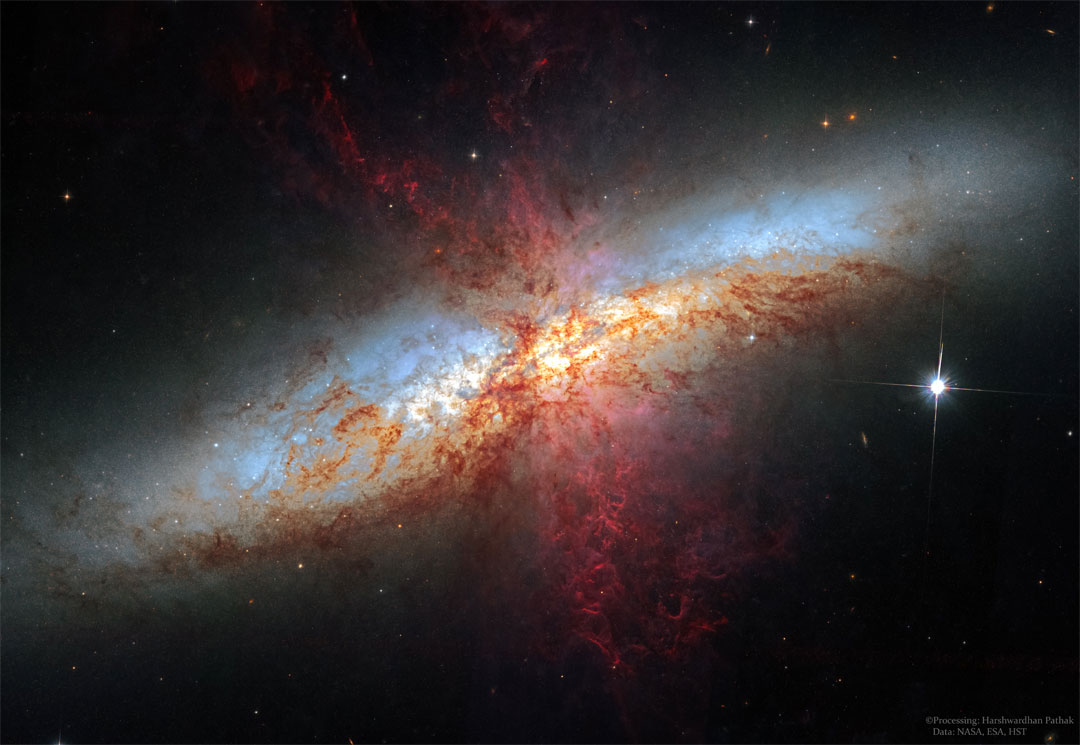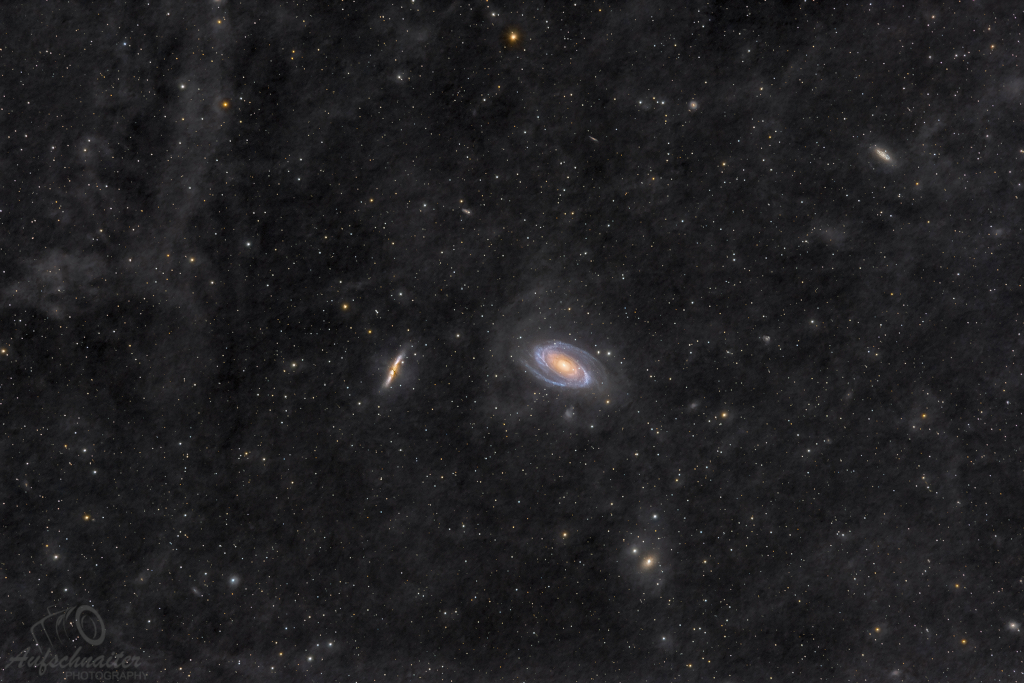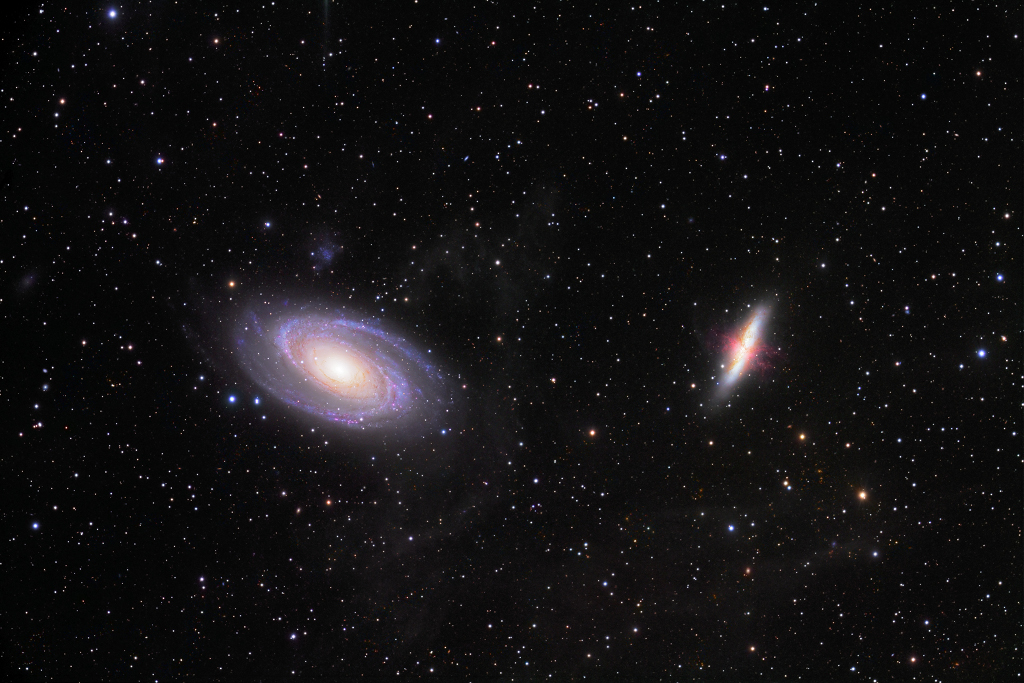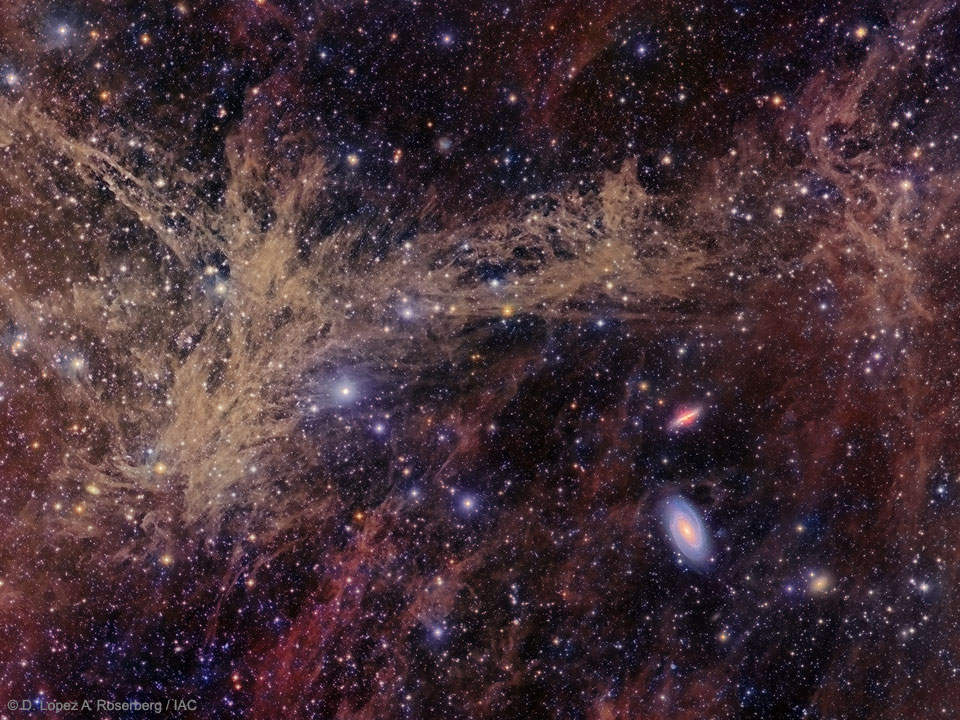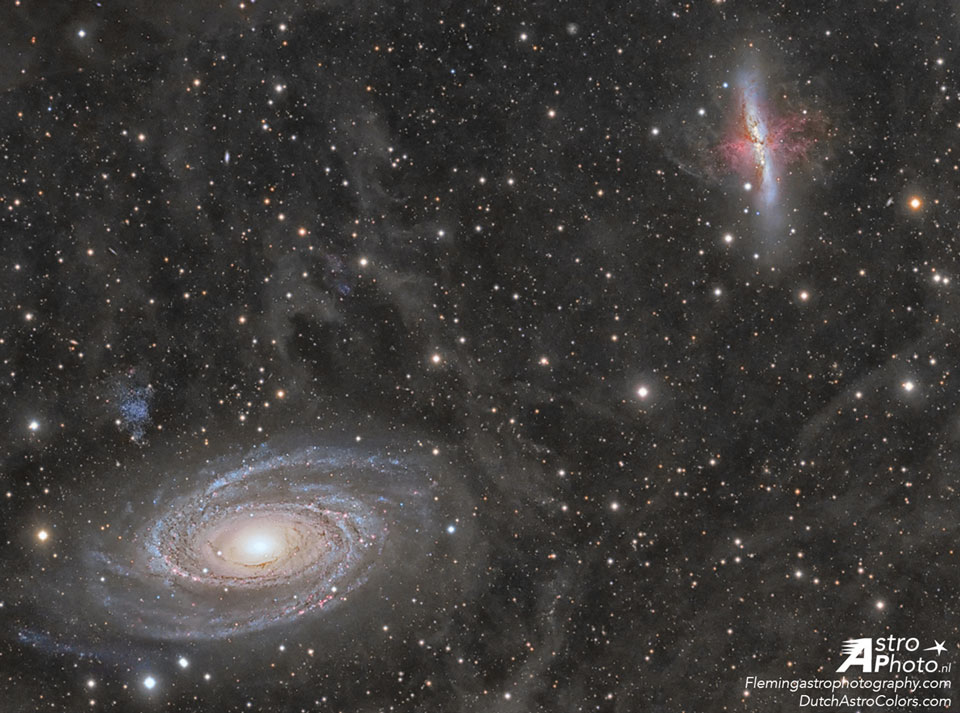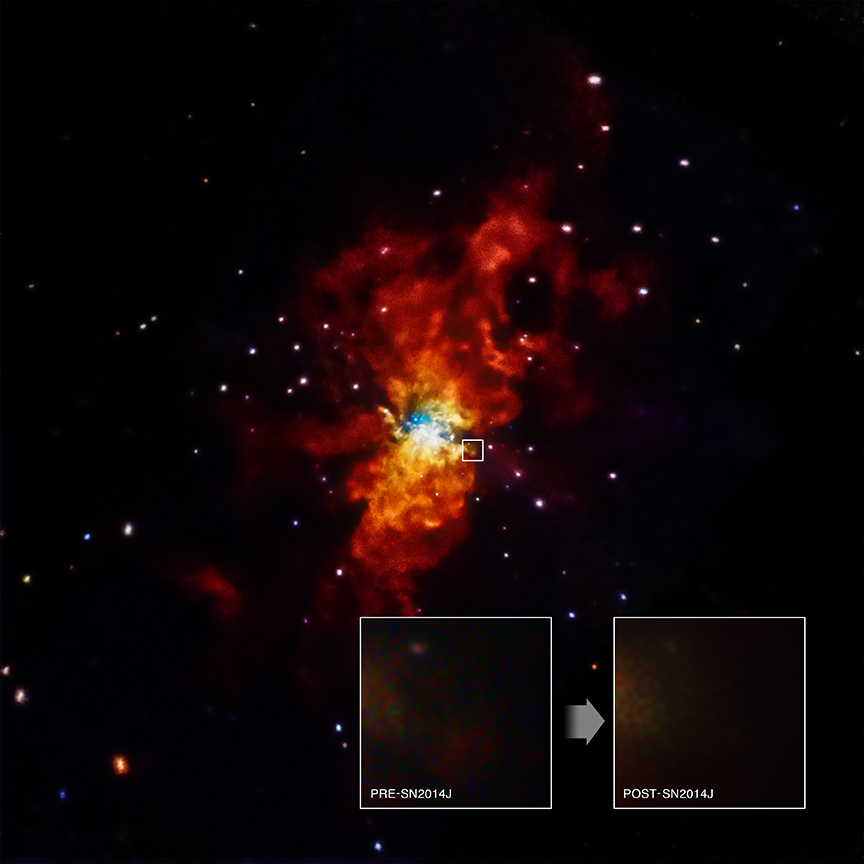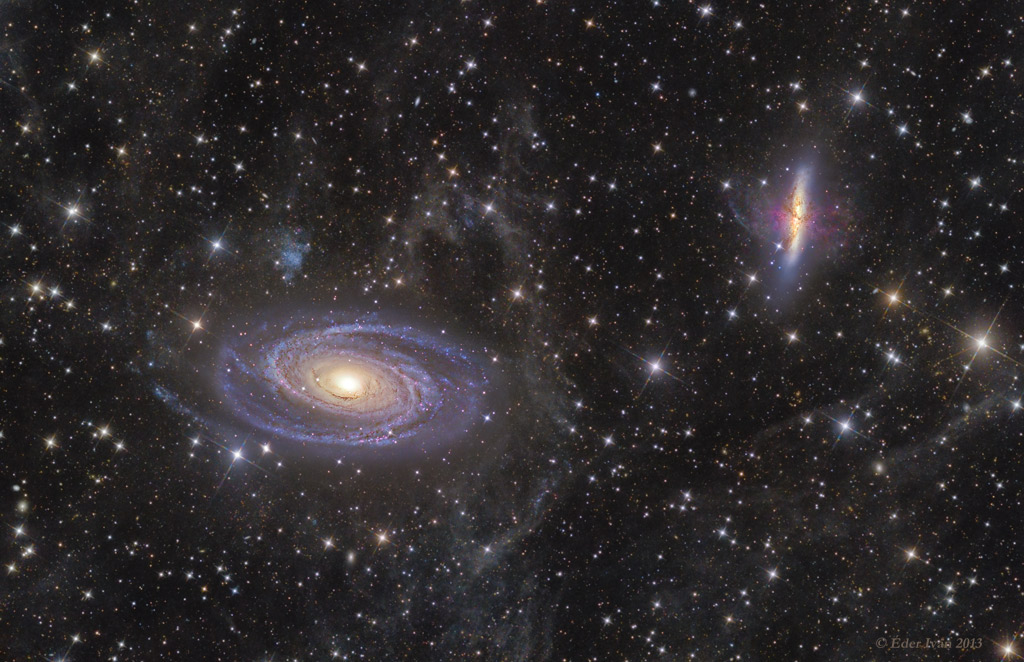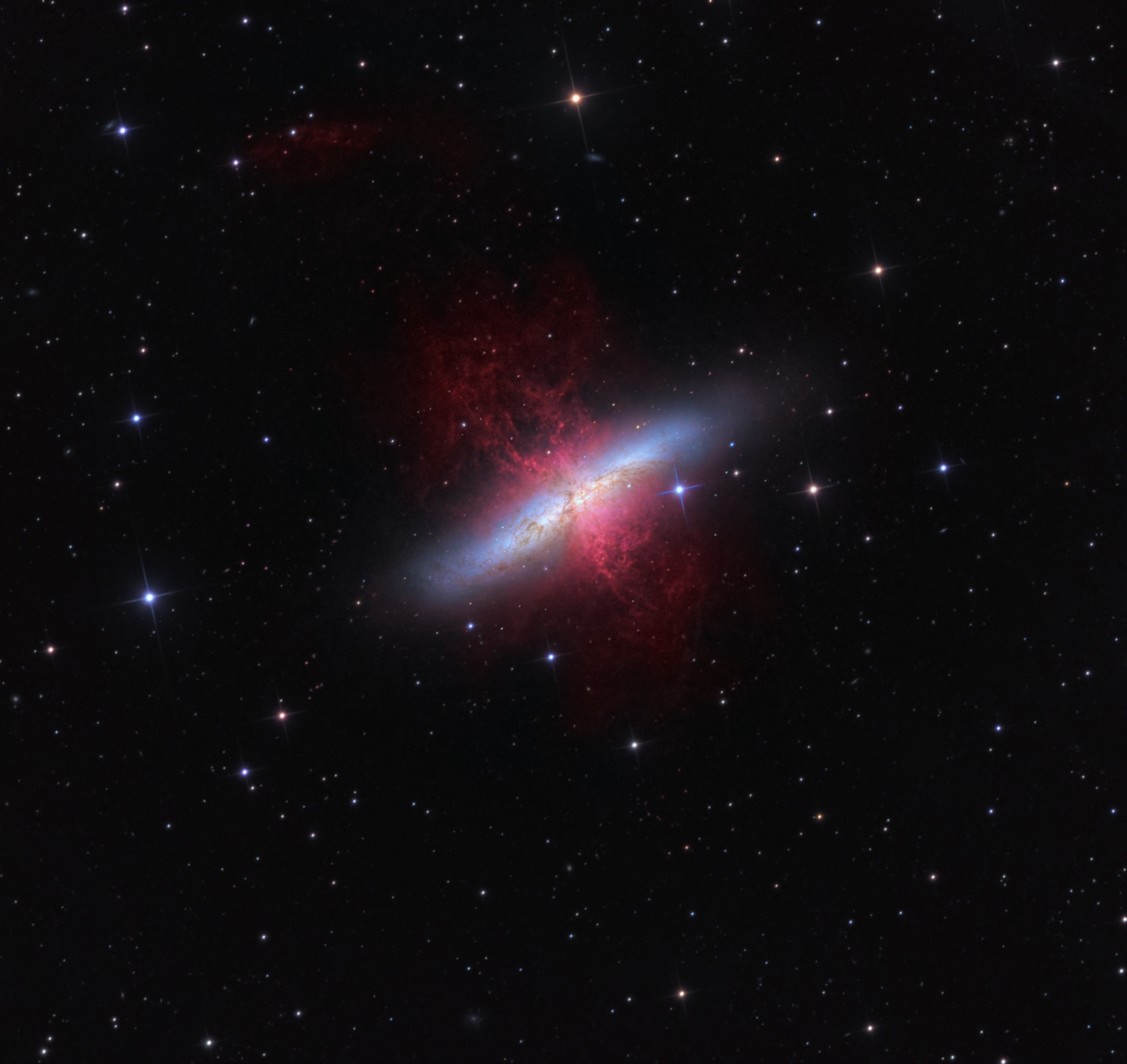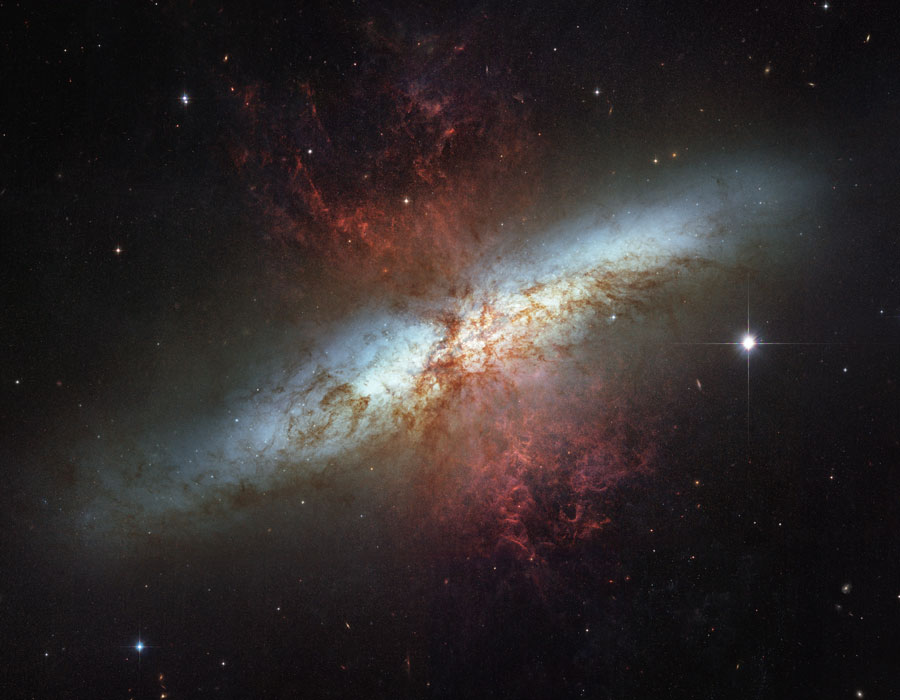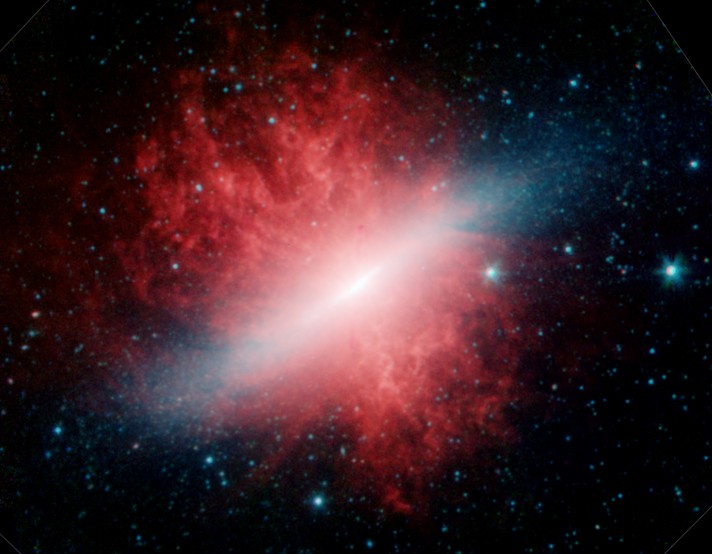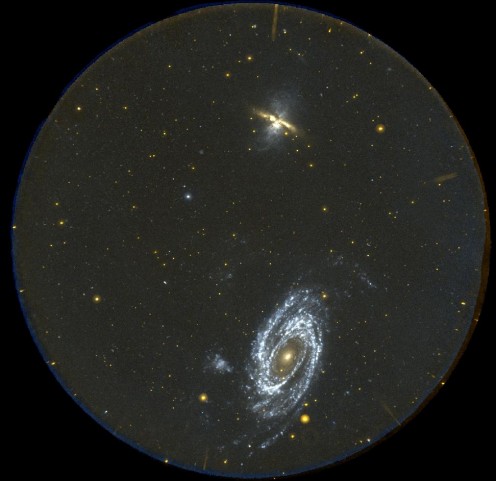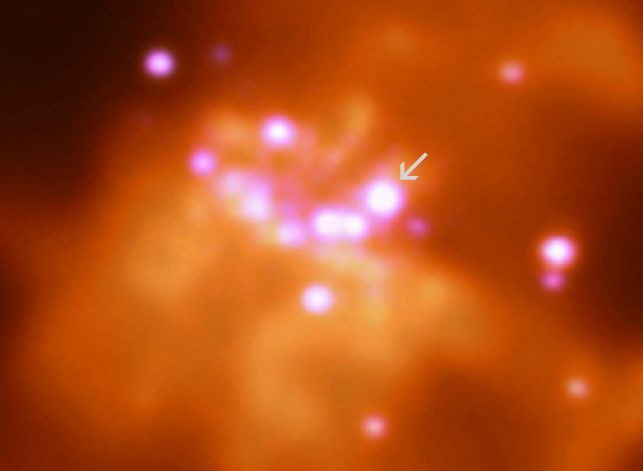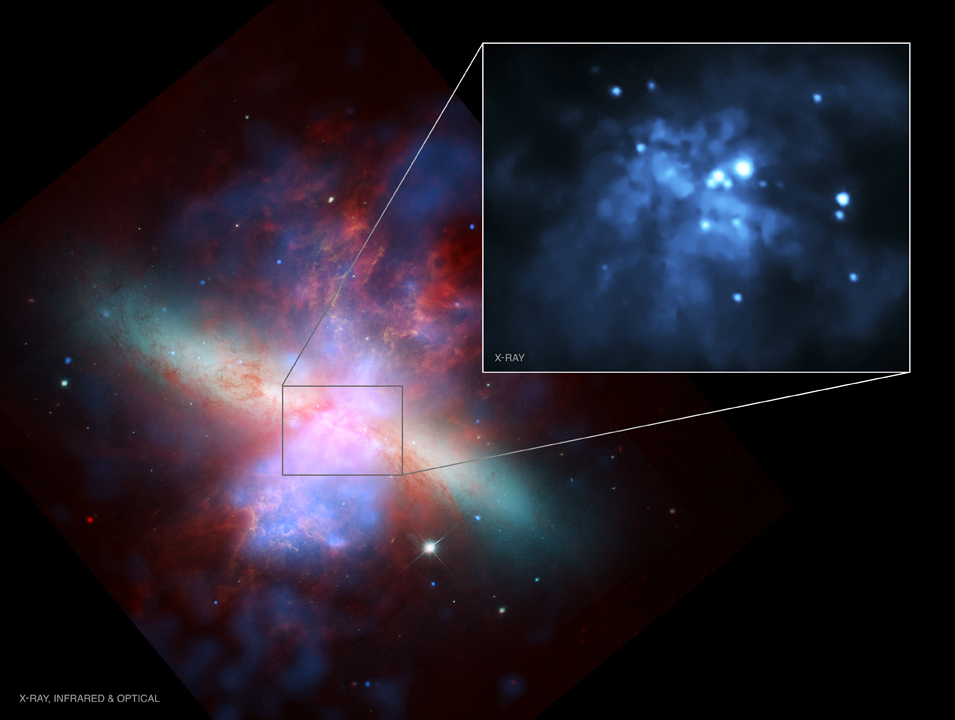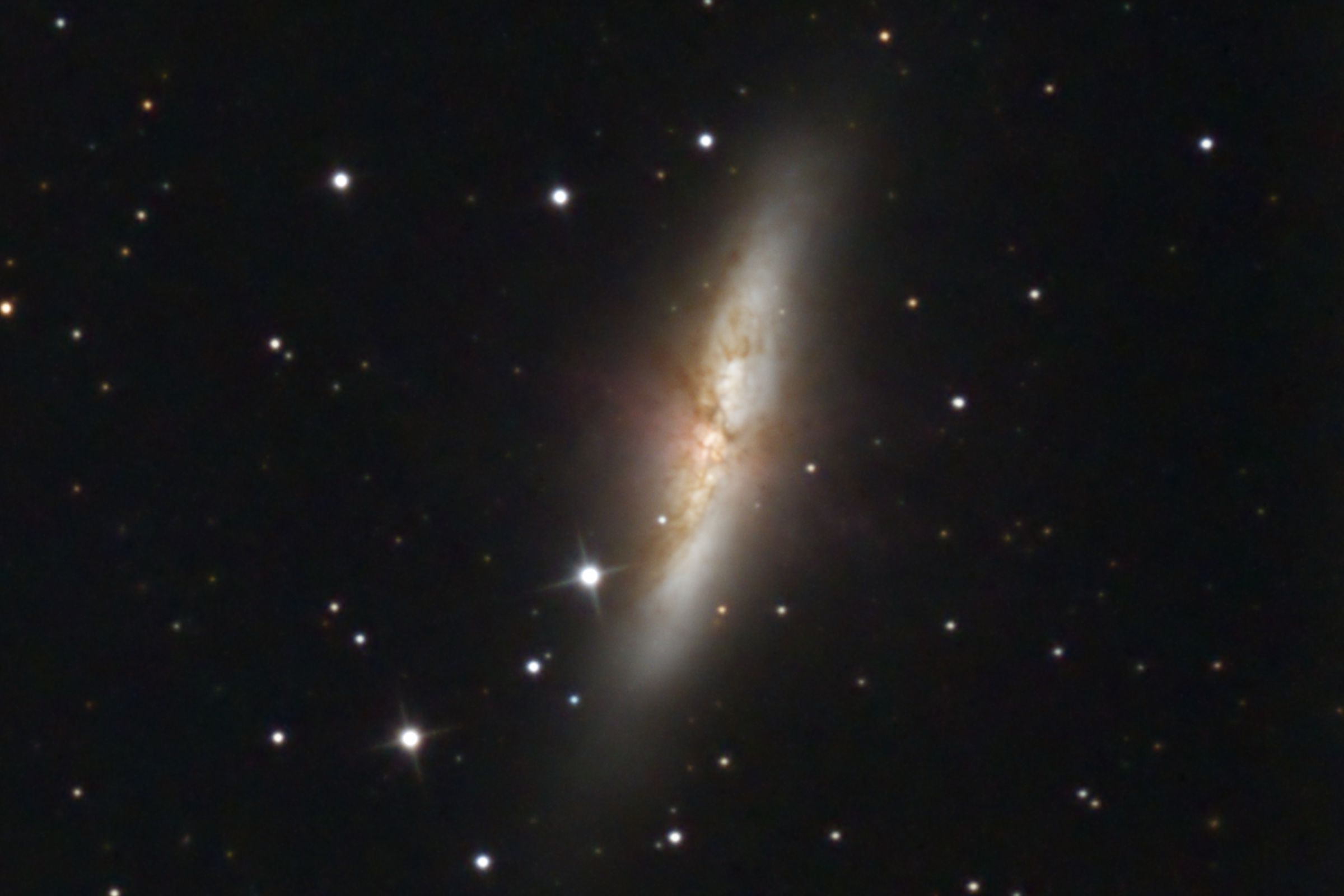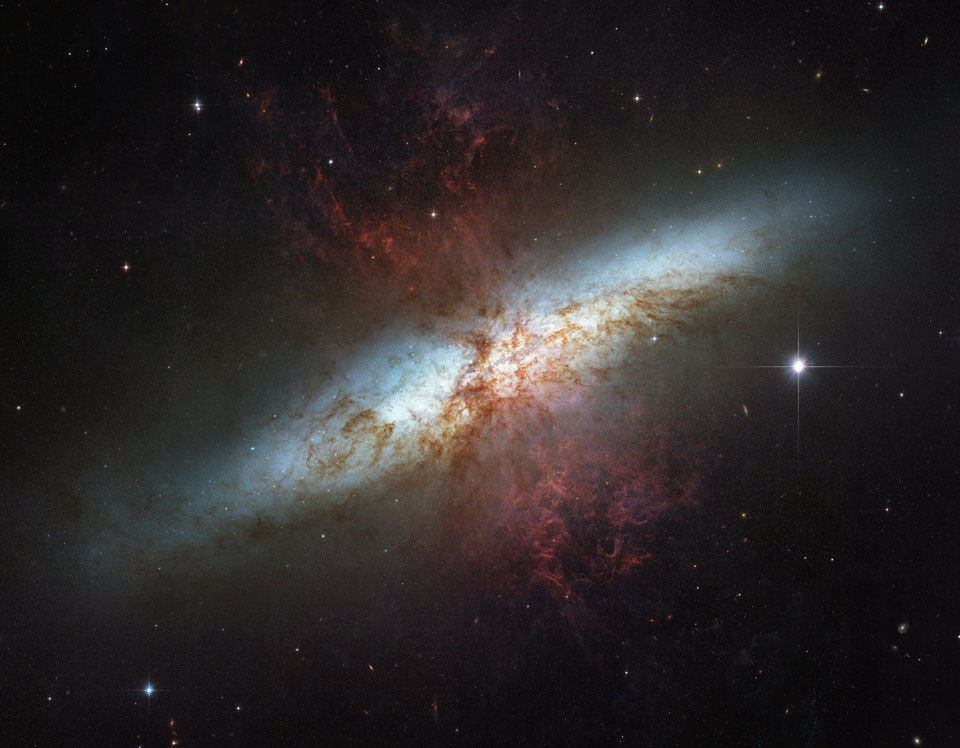Ah yes, dear old M82 again, the prototypical nearby starburst galaxy!

Like many starburst galaxies, M82 is small.
Wikipedia wrote:
It is the second-largest member of the M81 Group, with the D25 isophotal diameter of 12.52 kiloparsecs (40,800 light-years).
(Yeah, yeah, isophotal diameter - if I understood it correctly, it means the diameter out to the distance from the center where the average B magnitude drops below 25 mags/arcsecond. Never mind!!)
So let's just day diameter. If the diameter of M82 is
around 41,000 light-years, then that means that the diameter of M82 is less than half the diameter of the Milky Way, which makes it tiny indeed!
Yes, but despite its small size, M82 is bright!

Wikipedia wrote:
It is about five times more luminous than the Milky Way and its central region is about one hundred times more luminous.
That little wisp of a thing!!!!
The reason why M82 has such a tremendously bright center is because there is a truly gigantic starburst going on in its center.
(I hate those old Hubble images that came with huge white borders on each side... anyway...)
Wikipedia wrote:
In 2005, the Hubble Space Telescope revealed 197 young massive clusters in the starburst core.[7] The average mass of these clusters is around 200,000 solar masses, hence the starburst core is a very energetic and high-density environment.[7] Throughout the galaxy's center, young stars are being born 10 times faster than they are inside the entire Milky Way Galaxy.
M82 photographed without an Hα filter.
Credit: N.A. Sharp/AURA/NOAO/NSF
I had to post the picture by N.A. Sharp/AURA/NOAO/NSF as an attachment, because it is so large! It's almost a megabyte in size, can you believe it? And there are white borders attached to it, too. Sigh.
Anyway. I wanted to point out that the ionized gas flowing out of M82 is not all that very visible if you don't photograph M82 with an Hα filter. But all the dust is very visible!
Because of the violent outflow of gas from the center of M82, and because of all the dust that is created because of it it, the disk of M82 is weird. It is very dusty, but it has no "normal" dust lanes. The violent gaseous outflow from the center appears to play havoc with the disk, so that the disk appears to lack spiral arms and star formation. (Although, as Wikipedia tells us, M82 does have a pair of spiral arms that are visible in infrared light.)
When I look at M82, I get the impression of a galaxy lighting up its center so brilliantly that it is turning itself inside out, violently ejecting all its starforming material, forming a great red bipolar gas plume over its center and a leaving a chaotic mess of dust lanes over a barren disk.
Ann
 M82: Galaxy with a Supergalactic Wind
M82: Galaxy with a Supergalactic Wind